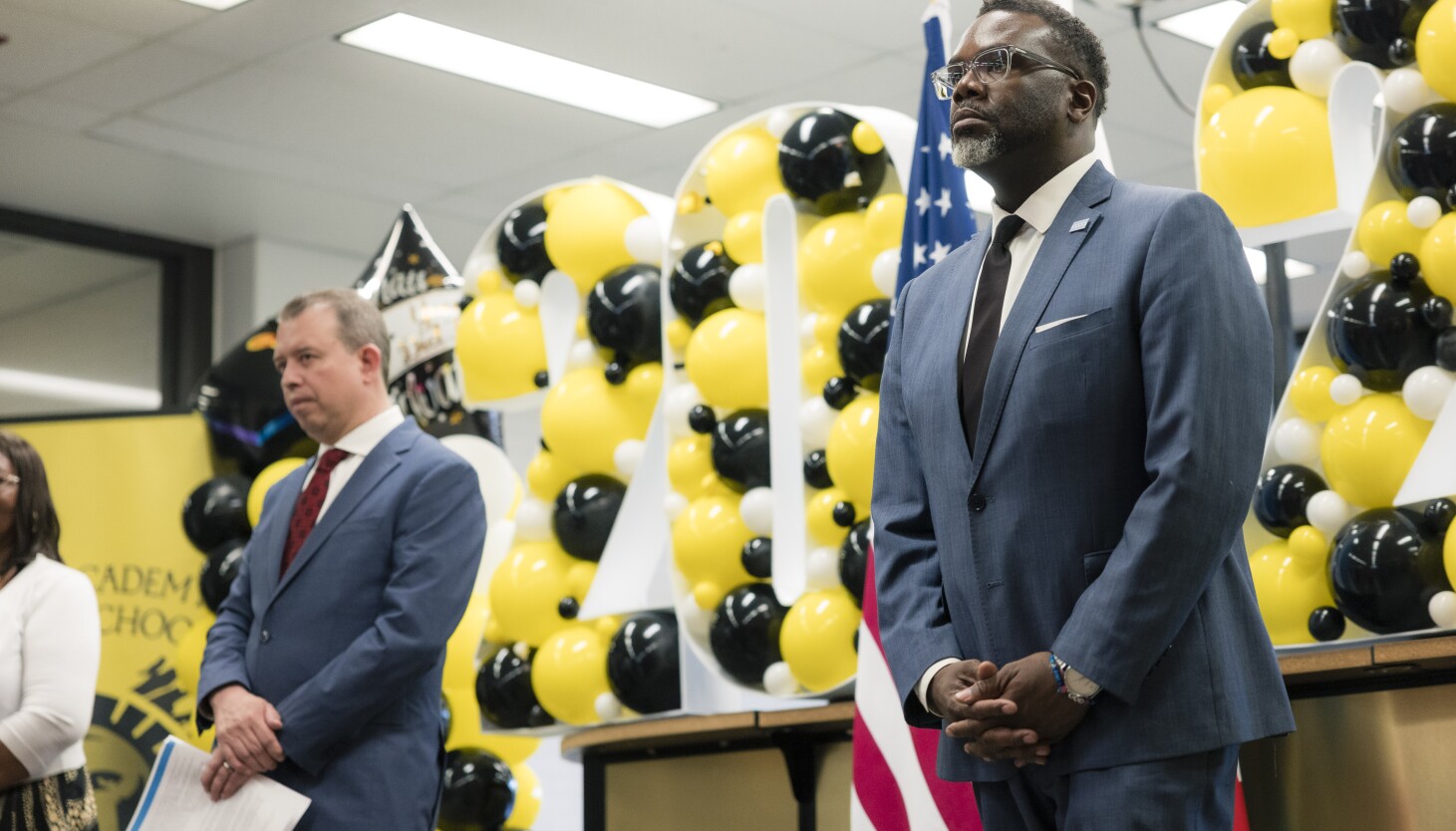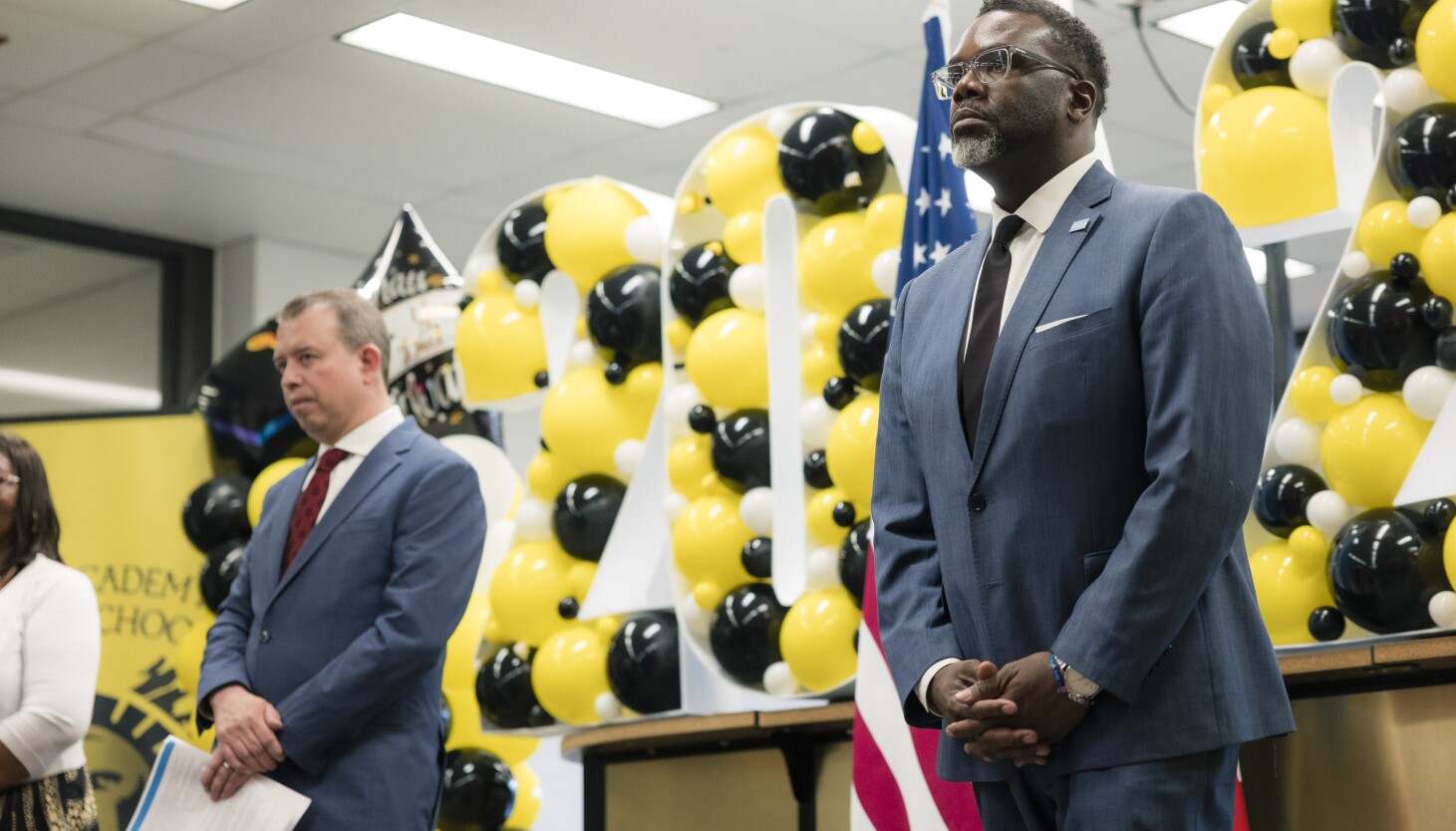
Mayor Brandon Johnson’s attempt to oust Chicago Public Schools CEO Pedro Martinez has devolved into a messy, politically charged battle, culminating in a Friday night vote just days before Christmas. Initially marked by polite public appearances, the relationship between the mayor and the CEO quickly soured amidst mounting controversies.
The central conflict revolves around finances. The Chicago Teachers Union (CTU), a powerful Johnson ally, seeks a lucrative contract with ambitious proposals that could significantly alter the underfunded school district. The CTU demands assurances against layoffs and furloughs, but the costs, coupled with a contentious pension payment dispute, threaten a substantial mid-year budget deficit. While a surplus from tax increment financing helps, a significant shortfall remains, potentially necessitating budget cuts.
To address this, the mayor and CTU advocate for a short-term, high-interest loan. Martinez, however, staunchly opposes this, deeming it fiscally irresponsible without securing additional funding first. This disagreement has transformed the budget crisis into a broader ideological clash. It pits more conservative, business-oriented groups opposed to high spending against a progressive mayor who views austerity measures as detrimental to underserved communities.
The mayor’s handling of the situation has drawn criticism. While initially aiming to demonstrate independence from the CTU, Johnson’s decision to push for Martinez’s removal at a politically charged moment fueled accusations that he’s prioritizing his former union’s interests. This has emboldened traditional opponents of the CTU’s progressive agenda, including some City Council members, charter school groups, and business interests, who rallied behind Martinez.
Further complicating matters, the entire school board resigned in October amidst scrutiny and concerns about potential lawsuits, broadening the chorus of criticism. Even former CPS CEOs, long-standing adversaries of Johnson and the CTU, weighed in, condemning the situation as politically motivated.
Despite the controversy, Ald. Jeanette Taylor, chair of the City Council’s education committee, defends the mayor’s right to choose his own schools chief, highlighting the hypocrisy of those criticizing Johnson while ignoring past failings of the school system. She points out the lack of similar outrage over previous school closures, busing cuts, and inadequate school maintenance.
The conflict leaves parents frustrated and bewildered. Katrina Adams, a parent of three, expresses concern about potential cuts impacting students’ education, while also opposing a high-interest loan that could burden the district’s future. The situation underscores the deeply political nature of the conflict and its detrimental effects on students and families.

